Update time:2025-11-12Visits:2837

Dr. Chen Bin serves as the Administrative Deputy Director of the Department of Otolaryngology-Head and Neck Surgery at Shanghai Sixth People’s Hospital, while also leading as Director of the department at the Lingang Campus. His academic appointments include positions as Standing Committee Member of the Otology Branch of the Chinese Geriatrics Society, Committee Member of the Otolaryngology-Head and Neck Surgery Branch of the Chinese Medical Association, Standing Committee Member of the Head and Neck Tumor Committee and Thyroid Committee of the Professional Committee of Otolaryngology of the Chinese Association of Integrative Medicine, Committee Member of the Otolaryngology Branch of the Shanghai Medical Doctor Association, and Committee Member of the Hearing Rehabilitation Professional Committee of the Chinese Rehabilitation Medicine Association.

Nine years later, when I met Dr. Chen again, he was in the otolaryngology clinic. Several striking strands of silver had appeared at his temples, like frost quietly painted by time, yet his upright posture remained unchanged. When he turned around, his eyes were as clear as ever, even sharper and more tempered than nine years ago. When the conversation turned to patients, those eyes would light up—as if the surgical lamp suddenly focused, with a “magical” glow dancing deep in his pupils: it was the passion where clinical data met the warmth of life, the certainty accumulated from decades of battling disease, and above all, a heartfelt concern for every living soul.
In 2025, Lingang is no longer the barren wasteland it once was. The development of the Free Trade Zone and new area has filled it with vitality, and the Sixth People’s Hospital Lingang Campus has become a regional medical center. Standing on the hospital’s rooftop, Dr. Chen gazed at the distant East China Sea, his eyes full of hope. “We still have a long way to go,” he said. The discipline will develop toward sub-specialties, and the cutting-edge advances in these areas represent the future direction for his team. “But no matter how technology develops, the six words ‘seriousness, diligence, and effort’ will never become outdated.”

1. Childhood Dreams Under the Banner
“As a child, leaning on the windowsill of our apartment on Beijing West Road, I could always see the red flag fluttering on the roof of the inpatient building of Shanghai Sixth People’s Hospital across the street,” Dr. Chen’s voice carried a distant warmth, as if traveling through a half-century time tunnel. That flag, particularly vibrant against Shanghai’s gray skies in the 1960s and 70s, became the most vivid symbol of his childhood memories.
When family members fell ill, his parents would hold his small hand as they crossed the short stretch of Beijing West Road, entering the outpatient and inpatient buildings of Shanghai Sixth People’s Hospital. The smell of disinfectant in the air and the cleanliness of doctors’ white coats planted a seed of reverence in his young heart.
In 1982, as China’s reform and opening-up policy swept across the nation, slogans like “March toward science” and “Revitalize China” stirred the passion of the young generation. When filling out his college applications, the simple advice from relatives and friends—“Being a doctor is quite good”—resonated quietly with that flag in his heart. Shanghai Second Medical University’s medical program became the first coordinate in his life’s journey.
Six years of rigorous study—from tedious anatomical charts to complex pathophysiological mechanisms, from late nights studying in the library to the relief after independently completing his first wound cleaning and suturing during clinical internship—the hardships and glories of the medical path gradually became clear beneath his feet.
“Clinical medicine doesn’t rely on talent, but on countless days and nights of dedicated practice,” Dr. Chen often tells young doctors. After graduating with honors from the medical program at Shanghai Second Medical University, he joined the Department of Otolaryngology at Shanghai Sixth People’s Hospital, benefiting from the mentorship of senior physicians like Ge Xianxi and Shen Pingjiang. In 1996, he was admitted to the master’s program in otolaryngology at Renji Hospital, studying under Professors Zhao Jiyu and Zhou Liang. After returning to Sixth People’s Hospital, he pursued his doctorate under Professor Yin Shankai. Under his mentors’ guidance, he absorbed knowledge like a sponge. The mysterious microscopic world under the experimental microscope and the brilliant miracles of life under the surgical lamp intertwined, shaping his rigorous and truth-seeking medical character.
“I hate empty talk and making rash promises,” Dr. Chen’s tone was decisive. In his view, medicine is a science that tolerates no superficiality. When facing difficult cases, he never rushes to conclusions but repeatedly deliberates, seeks multiple opinions, and proceeds layer by layer. This almost obsessive caution stems from his reverence for life and his deep understanding of the essence of medicine—behind every decision lies a living being.

2. Pioneering in Lingang—Sowing Hope in Barren Land
In the late autumn of 2012, the Lingang Campus of Shanghai Sixth People’s Hospital rose from the ground on the shore of the East China Sea. When Dr. Chen received his appointment as Director of the Department of Otolaryngology-Head and Neck Surgery, he faced a true “medical desert.”
Lingang, a new town 50 miles from the city center, had sparse population, inconvenient transportation, and scarce medical resources. At its smallest, the department had only three or four doctors who needed to handle all aspects of outpatient and emergency services while managing ten inpatient beds. In those days, the hospital’s outpatient hall was often so empty you could hear echoes.
“At that time, we were like the ‘pioneering team’ of the medical world,” Dr. Chen recalled. Therefore, with insufficient personnel, to ensure medical safety, he made a shocking decision—he moved directly into the hospital. For three and a half years, over a thousand consecutive days and nights, his home was a folding bed in the director’s office. Lingang nights were terrifyingly quiet, with only the emergency room lights and occasional phone calls accompanying this pioneer.
“Otolaryngology-head and neck surgery emergencies can determine life or death in minutes. Especially critical emergencies involving the airway often require immediate action, racing against time,” Dr. Chen still remembers those heart-pounding moments. Once, while passing through the hospital corridor, he happened upon an elderly patient who suddenly experienced suffocation. Dr. Chen ran to the patient’s bedside while instructing nurses to quickly bring surgical gloves and a tracheotomy kit. Together with doctors who arrived later, he performed a tracheotomy and inserted a tracheostomy tube within 1-2 minutes while simultaneously performing CPR. Eventually, the patient’s heartbeat and breathing were restored, and they were transferred to the ICU for further treatment. Such situations were commonplace in Dr. Chen’s career.
Years later, under Dr. Chen’s mentorship, young doctors in the department grew rapidly. When the Lingang campus encountered multiple burn patients, the hospital urgently mobilized relevant departments for rescue. The otolaryngology-head and neck surgery team rushed to the emergency room at the first news, successfully performing tracheotomies on five patients simultaneously and continuously on three emergency beds, maintaining airway patency and winning the “golden time” for subsequent rescue treatment.
The hardships of the pioneering period extended far beyond medicine itself. With insufficient department staff, Dr. Chen had to perform complex surgeries while handling administrative affairs. Professionally, he jokingly called himself a “general practitioner within the scope of otolaryngology-head and neck surgery” covering both ear surgery and throat-head and neck surgery. In management, from outpatient consultations to surgical scheduling, from medical record quality control to equipment maintenance, he handled every detail personally. In teaching, he led by example, pouring his heart into the growth of young doctors. During the early hospital period, he was also elected as a member of the campus staff committee and department staff union chairman, promoting understanding and camaraderie among colleagues from different departments through cultural and sports activities organized by the hospital staff union, enhancing the hospital’s cohesion.
“At that time, the hospital was like a big family,” Dr. Chen said. Although conditions were harsh, everyone worked together with one heart and one mind, supporting each other and finding joy in hardship—those days became the most precious memories.


3、Life Miracles on the Knife’s Edge
Under Dr. Chen’s surgical knife, countless life miracles quietly blossomed. Under his leadership, the Lingang campus otolaryngology-head and neck surgery department has developed distinct characteristics in multiple fields including otology and throat-head and neck surgery.
Dr. Chen’s surgical style, like his character—is steady, precise, and pursuit of excellence. He often says: “Surgery doesn’t pursue speed, but precision and reliability, allowing no mistakes.” This almost obsessive rigor allows him to handle difficult cases with ease. Perhaps it is this obsessive rigor that has enabled one patient after another to regain their freedom of life here.
When talking about his patients, Dr. Chen’s words suddenly fill with pride and satisfaction. In 2014, a university student from Ocean University with right congenital ear deformity found Dr. Chen. He had severe hearing impairment in his right ear since birth, and examination revealed that although he had a normal auricle, he lacked an external auditory canal and middle ear cavity. After visiting several major hospitals in the city, the patient finally came to the Sixth People’s Hospital Lingang Campus near his school. After careful examination, Dr. Chen formulated an appropriate surgical plan for him. Under the microscope, in the narrow surgical field, Dr. Chen meticulously reconstructed the patient’s external auditory canal and middle ear cavity. The patient eventually recovered postoperatively with significantly improved hearing levels. When the patient could clearly hear the wind, birdsong, and classmates calling his name, he was moved to tears. Years later, Dr. Chen saw him again in the clinic—the patient had grown into a confident young man full of hope for the future.
In 2015, a patient who had undergone radiotherapy and chemotherapy for nasopharyngeal carcinoma ten years earlier developed right cervical lymph node metastasis. The metastatic lymph node mass not only compressed and occluded the right internal jugular vein but also displaced and wrapped around the right common carotid artery by 180 degrees, extending downward to invade the right subclavian artery and vein. Multiple hospitals refused admission due to high surgical risks. After carefully studying the imaging data, Dr. Chen decided to face the challenge. He led the surgical team from 9 AM to midnight, carefully dissecting the tumor while repairing damaged and bleeding neck great vessels with non-invasive sutures. In the quiet operating room late at night, when the final stitch was completed, the relieved medical staff couldn’t help but let out soft cheers. The patient remained disease-free for many years postoperatively.
The elderly mother of an Ocean University professor had suffered from multinodular goiter for forty years. The gradually enlarging thyroid mass not only caused abnormal neck swelling but also severely compressed the trachea, with the narrowest point of the trachea having less than 4 millimeters of space. Once respiratory infection occurred, suffocation could occur at any time. Multiple major hospitals refused surgery due to enormous risks. Dr. Chen and Anesthesiology Director Cui Derong repeatedly studied anesthesia and surgical plans, formulating comprehensive perioperative emergency plans. During surgery, he precisely dissected and completely removed the huge thyroid mass, with good protection of bilateral recurrent laryngeal nerves and parathyroid glands. Postoperatively, the patient’s breathing recovered smoothly, her voice was clear, and she had no symptoms of hand and foot numbness or spasms. During follow-up, this mother held Dr. Chen’s hand and said: “Thank you for giving me a second life.”
Another patient with long-term ear discharge and recent worsening headache underwent temporal bone thin-layer CT, which showed huge petrous bone cholesteatoma lesions filling the mastoid cavity, extending forward to the root of the zygomatic arch air cells, upward and backward to the middle and posterior cranial fossae, causing extensive defects in the middle and posterior cranial fossa dura plates, extending inward deep into the petrous apex. Under the microscope, Dr. Chen carefully dissected and removed cholesteatoma and granulation tissue adhering to the dura mater, completely excising the lesion. Postoperatively, the patient achieved a dry ear and reconstructed hearing. When the patient opened his eyes after general anesthesia recovery and said “thank you” in a weak voice, Dr. Chen felt all fatigue disappear. The patient remained disease-free for many years postoperatively.
Successful cases are just a microcosm of Dr. Chen’s medical career. Over thirteen years, he has completed nearly a thousand difficult surgeries at the Lingang campus, from congenital ear deformities to petrous bone cholesteatomas and congenital middle ear cholesteatomas, from traumatic facial paralysis to traumatic tracheal rupture, from parotid malignant tumors and laryngeal cancer to residual recurrent thyroid cancer resistant to radioactive iodine treatment—each case embodies his heart and wisdom. His surgical knife removes disease and reshapes patients’ lives.


4. Lighting the Future Path for Young Doctors
“Medicine is not one person’s battle, but a relay across generations.” Dr. Chen deeply understands that individual strength is ultimately limited; only by cultivating excellent successors can the department continue to develop. As a doctoral supervisor, he considers mentoring young doctors as important a mission as surgery itself.
“Clinical experience isn’t gained by observation, but by solid practice,” Dr. Chen often tells young doctors. He adheres to the principle of “letting go without losing sight,” allowing young doctors to grow in real practice. From simple wound cleaning and suturing to complex surgeries, he guides them step by step, patiently explaining every operational point. He encourages young doctors to observe more, ask more, and practice more. They must not only learn techniques but also learn how to communicate with patients and how to respond to emergencies.
Dr. Chen not only imparts techniques but also passes on medical compassion. He often tells young doctors: “We’re not facing cases, but living beings and families.” He requires doctors to focus not only on the disease itself but also on patients’ psychological needs and social backgrounds.
“Today’s young people have different perspectives from us, but the spirit of positivity and diligent study is the same,” Dr. Chen says. He respects the innovative thinking of the younger generation while insisting on the core values of medical tradition. He encourages young doctors to learn the latest guidelines, participate in domestic and international academic conferences, and supports research on new technologies. Under his leadership, the Lingang campus otolaryngology department has gradually grown from an initial “small team” into a professional group with solid skills and unity.
“The doctor-patient relationship is essentially a relationship between people,” Dr. Chen always believes that technology is the foundation, but compassion is the soul. Working diligently at the Lingang campus for thirteen years, he has not only won patients’ trust with exquisite medical skills but also warmed hearts with sincere care.
“Dr. Chen is particularly thorough in examinations and asks many questions.” This is patients’ common evaluation of him. On many online platforms, patients praise him for “clear diagnosis, patient communication, and kind attitude.” One patient wrote: “Dr. Chen not only cured my illness but also resolved my psychological concerns.”
Dr. Chen’s “slowness” is particularly precious in today’s efficiency-driven world. He never hesitates to spend time communicating with patients, explaining conditions and treatment plans in detail, and patiently answering every question. He deeply understands that the complexity of medicine fills patients with fear and confusion, and a doctor’s patience and explanation are the best medicine to eliminate fear.
“Doctors must put themselves in patients’ shoes,” Dr. Chen says. He often saves costs for patients, choosing the most cost-effective plans while ensuring efficacy; he cares about patients’ financial situations and tries his best to help those in difficulty; he pays attention to patients’ psychological needs, offering comfort and encouragement with warm words.
“Patients’ trust is a doctor’s greatest wealth,” Dr. Chen says. At the Lingang campus, he has gained the trust and friendship of countless patients. This trust wasn’t gained through publicity but accumulated through sincere consultations, successful surgeries, and warm words time after time.

5. Lingang Spirit: Persistence and Vision
Thirteen years is enough time for barren land to burst with life. Today’s Department of Otolaryngology-Head and Neck Surgery at the Sixth People’s Hospital Lingang Campus has developed from the initial “quiet doors” to handling 500-600 inpatients and over 400 surgeries annually. The department team continues to grow, technology increasingly advances, and reputation gradually spreads.
“Although Lingang is remote, the patients here need us,” Dr. Chen says. With the development of the Lingang New Area, population gradually increases, and medical demand grows daily. He and his team not only serve local residents but also attract many patients from other regions. Ear surgery, head and neck surgery especially thyroid surgery… more and more patients choose to come to Lingang, choosing to trust Dr. Chen and his team.
“Geographical location is inconvenient, but we can compensate with excellent technology and quality service,” Dr. Chen says. To facilitate patient access, he optimizes treatment processes and shortens waiting times; to improve medical quality, he strengthens multidisciplinary collaboration, working closely with ultrasound medicine, endocrinology, nuclear medicine, and other departments; to promote discipline development, he relies on main hospital resources, promotes integrated development, and integrates the Lingang campus into a larger development platform.
“In the future, I hope the department can form a virtuous cycle, with young doctors growing rapidly, technology continuously innovating, and service continuously optimizing,” Dr. Chen is full of expectations for the Lingang campus’s future. He plans to develop various new technologies and expand service scope; he hopes to strengthen research and teaching to enhance academic influence; he looks forward to cultivating more outstanding talents, allowing the various advantageous techniques of the Sixth People’s Hospital otolaryngology-head and neck surgery as a national key specialty to be inherited and carried forward at the Lingang campus.
“If you must stay, stay until spring blossoms; if you must leave, leave under bright lights.” This is something Dr. Chen often says. Thirteen years of persistence, he has witnessed the transformation of the Lingang campus otolaryngology-head and neck surgery department from nothing to something, from weak to strong; on the future road, he will continue to lead his team, forging ahead on the journey of medical practice.
The wind from Dishui Lake, carrying the unique salty taste of the East China Sea, sweeps past the new buildings of the Shanghai Sixth People’s Hospital Lingang Campus. Outside the window, Dishui Lake sparkles, reflecting the frost quietly whitening his temples and also reflecting the pioneering story of this suburban hospital from barrenness to prosperity.
As the sun sets, Dishui Lake’s surface glitters, reflecting the lights of the Sixth People’s Hospital Lingang Campus. Dr. Chen stands by the window, gazing at the gradually lighting homes in the distance, a warm current surging in his heart. Thirteen years of pioneering, through wind and rain, with hardships and challenges, but more importantly, with harvests and moving experiences.


ShanghaiDoctor.cn:The Lingang Campus has gone from performing zero thyroid surgeries to over 100 annually, even attracting patients with residual or recurrent conditions from other hospitals. What do you believe are the unique advantages of having thyroid surgery performed by the ENT-Head and Neck Surgery department?
Dr. Chen Bin:The thyroid is located right next to critical structures like the trachea and larynx—and that’s exactly our home turf! For instance, when thyroid cancer invades nearby organs such as the larynx or trachea, or when metastatic lymph nodes extend into the parapharyngeal space or even the lateral nasopharyngeal wall, our ENT-head and neck surgery team has a natural advantage in handling these complex situations. We had a patient from out of town who had undergone three previous surgeries elsewhere, with recurrent cervical lymph node lesions wedged between the carotid artery and internal jugular vein, and the condition was resistant to radioactive iodine treatment. We performed meticulous surgery to achieve complete removal. Our colleagues in ultrasound and radiology often say: “The neck dissections performed by ENT-head and neck surgery are as clean as textbook examples!” As a surgeon, hearing such praise is truly gratifying.
ShanghaiDoctor.cn:When the Lingang Campus was established in 2012, you—as an attending physician and doctoral supervisor—actually lived in the hospital ward every day? Looking back now, what sustained you during that period?
Dr. Chen Bin: Although there weren’t many patients in the early days, once we encountered patients with airway obstruction, the risks were extremely high—any misstep could even be life-threatening. At that time, our department was short-staffed and lacked experience. By sleeping in the hospital, I could rush over immediately to guide and participate in emergency rescues whenever critical situations arose. Looking back, young people today might say “The director works too hard,” but I’ve always maintained that “we must carry forward the traditions of the Sixth People’s Hospital’s ENT-head and neck surgery department to the Lingang Campus, and also continue the pioneering spirit from the hospital’s early days.” This isn’t just a slogan—it’s about translating that spirit into consistent, day-to-day actions!
ShanghaiDoctor.cn:You mentioned “passing down” clinical experience, but doctors from different generations—those born in the 80s, 90s, and 2000s—have different mindsets. How do you mentor them?
Dr. Chen Bin: Technical skills can be learned, but the mindset of “patients first” must never be lost! Surgery isn’t an examination—it’s about dealing with living human beings! I believe the current clouds over the doctor-patient relationship will eventually dissipate, and medicine will return to its essence. I think that in addition to learning professional techniques, today’s students need to absorb more from their teachers and senior colleagues—especially the spiritual aspects, particularly the humanistic dimension of care. I believe this is what true inheritance means.
Editor: Chen Qing @ ShanghaiDoctor.cn
Dr. Liang Wei | Dedicated to Vascular Health, Safeguarding the Body’s Lifelines
Dr. Zou Shien | A Physician’s Mission in Gynecological World
Dr. Bao Shihua | Where Dreams Begin from Reproductive Immunology
Dr. Yang Zhigang | The Art of the Healer: Between the Brush and the Brain
Dr. Cai Junfeng | Guarding Bone and Joint Health, Improving Quality of Life
Dr. Xu Xiaosheng|The Gentle Resilience of a Male Gynecologist
Dr. Shi Hongyu | A Cardiologist with Precision and Compassion
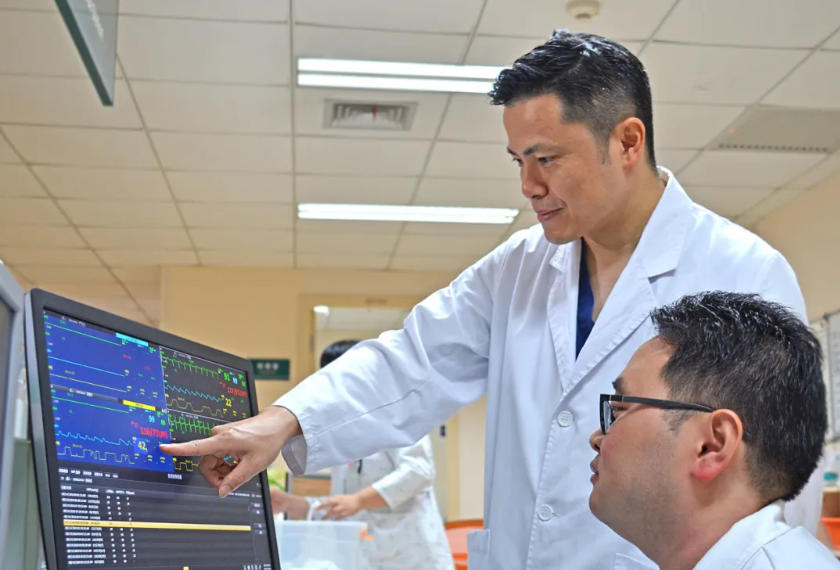
Dr. Liang Wei | Dedicated to Vascular Health, Safeguarding the Body’s Lifelines
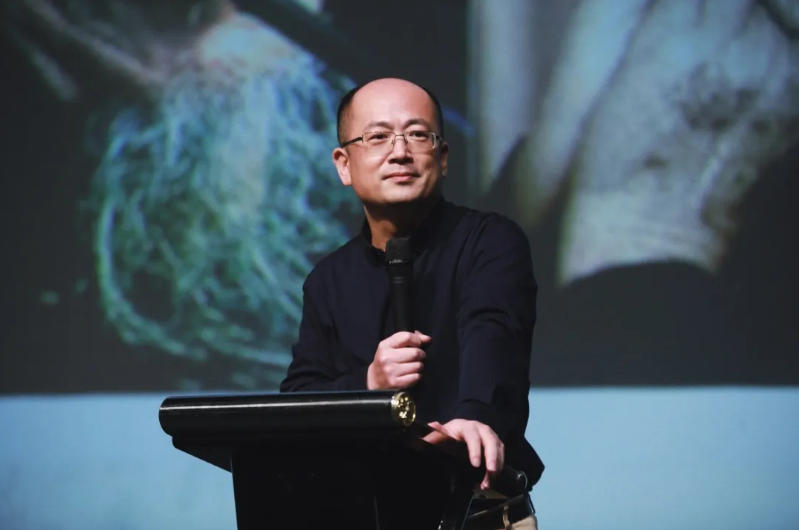
Dr. Zou Shien | A Physician’s Mission in Gynecological World
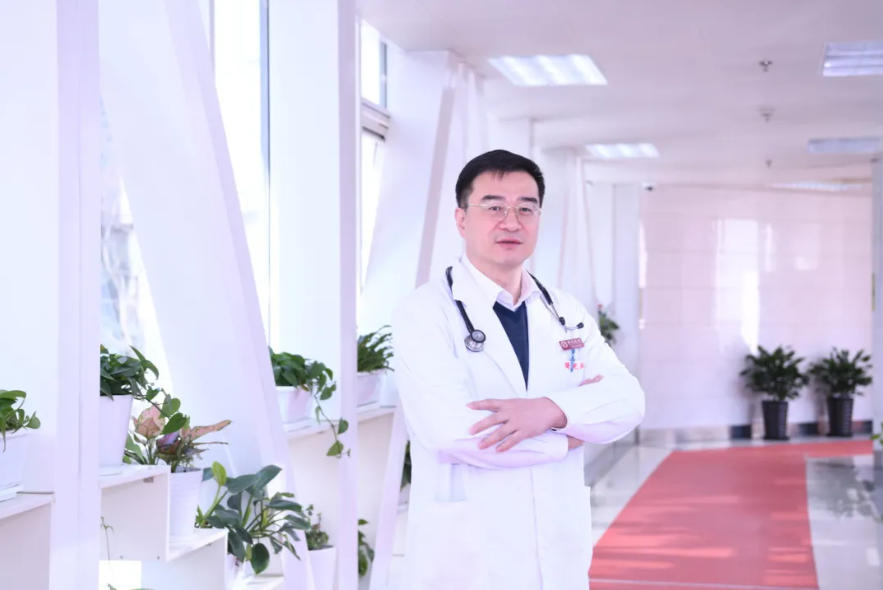
Dr. Cui Song | Healing the Heart, in Every Sense
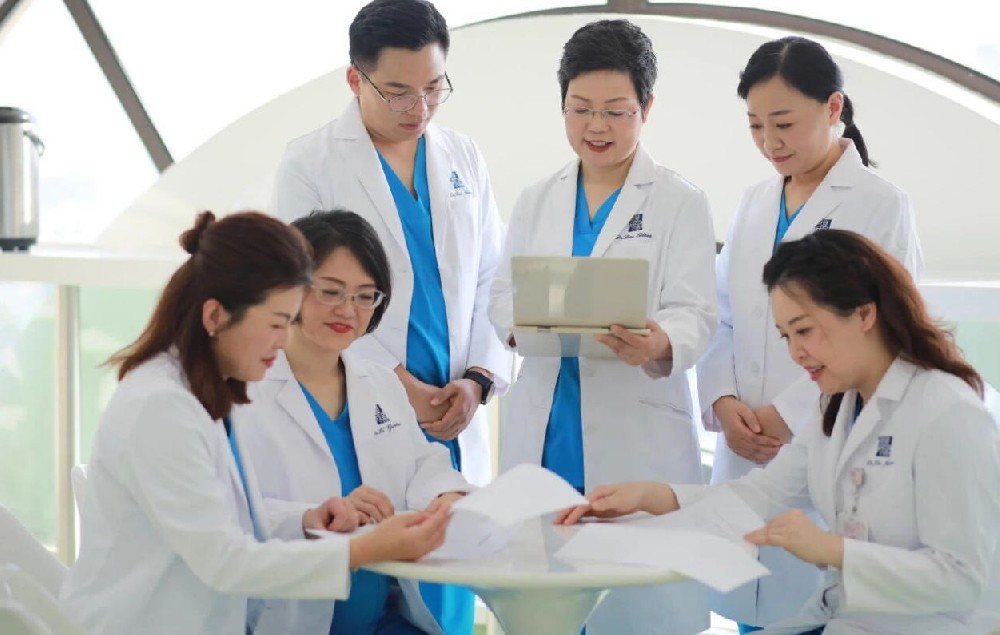
Dr. Bao Shihua | Where Dreams Begin from Reproductive Immunology
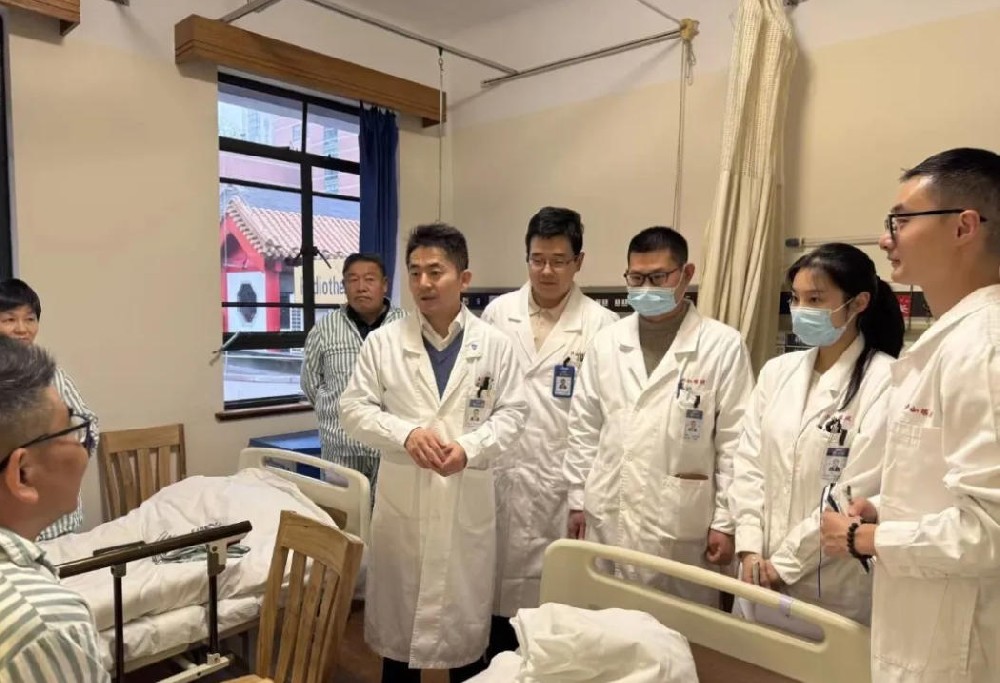
Dr. Yang Zhigang | The Art of the Healer: Between the Brush and the Brain
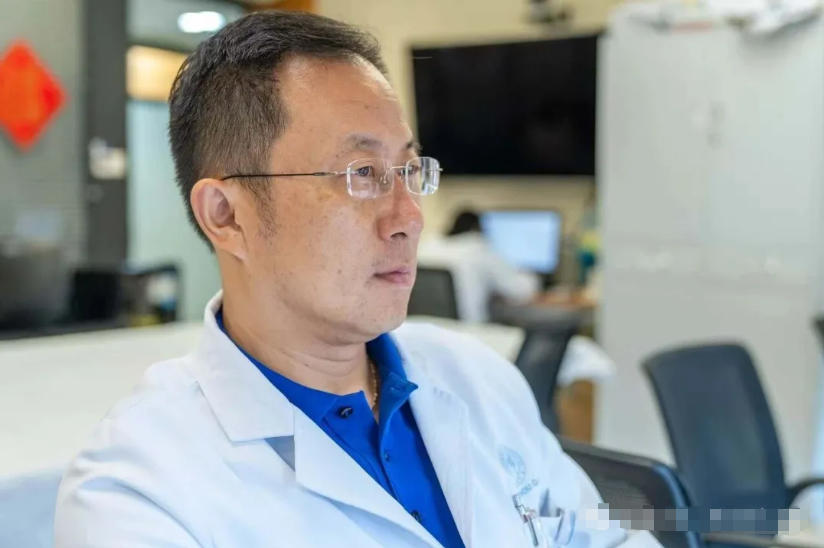
Dr. Zhou Qianjun | Sculpting Life in the Chest
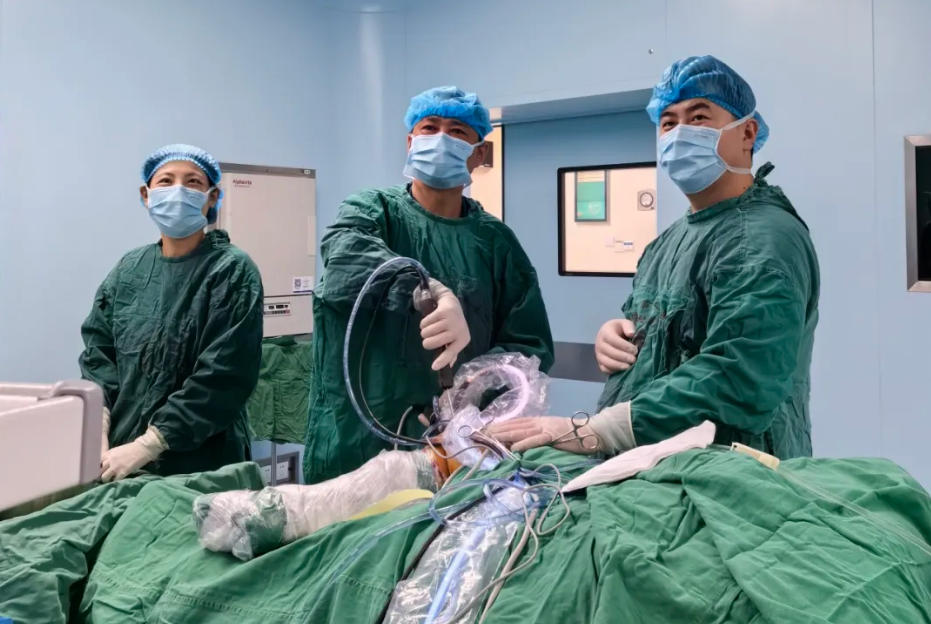
Dr. Cai Junfeng | Guarding Bone and Joint Health, Improving Quality of Life
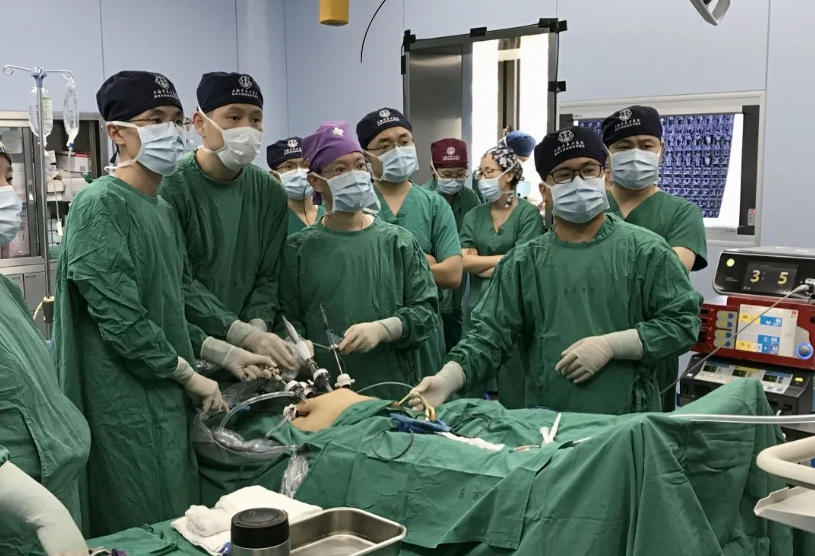
Dr. Cui Xingang | The Medical Dream of a Shanghai Urologist

Dr. Xu Xiaosheng|The Gentle Resilience of a Male Gynecologist

Dr. Shi Hongyu | A Cardiologist with Precision and Compassion